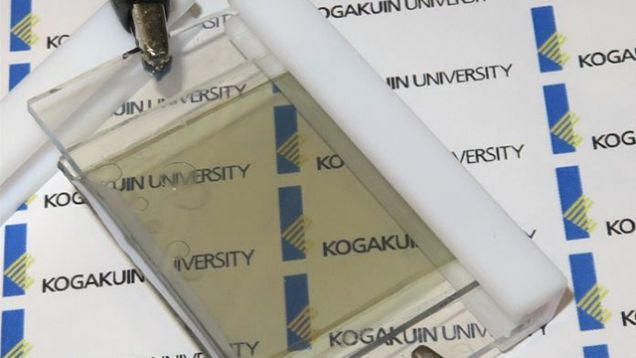A group of Japanese researchers have managed to improve the design of a transparent lithium-ion battery so that it’s now able to recharge itself when exposed to sunlight without the need for a separate solar cell.
The transparent battery was first developed by the researchers, led by Kogakuin University president and professor Mitsunobu Sato, back in 2013. The electrolyte used for the battery’s positive electrode is made mostly from lithium iron phosphate, while the electrolytes used for the negative electrode include lithium titanate, and lithium hexafluorophosphate.
Those are all common ingredients used in Li-ion rechargeable batteries, but the thickness of these electrodes are just 80 to 90 nanometers, which allows a lot of light to pass through and makes these batteries almost completely transparent.
